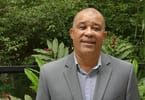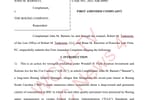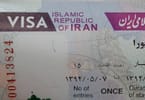(eTN) – Reliable sources in Juba, the present capital of the autonomous region of South Sudan, have given a stronger indication than ever before that a new capital city may become reality after independence has been achieved on July 9 of this year.
Juba, also the state capital of Central Equatoria State, is located on the river Nile where one of the rare bridges spans the river and where an international airport – albeit due to technical constraints only operating during daylight hours – connects the city to Nairobi, Entebbe, Addis Ababa, and also to Khartoum.
Soon after the CPA (Comprehensive Peace Agreement) was signed in January 2005, the government of South Sudan was set up in Juba, although at the time there were persistent rumors, at least while the “father of the South Sudan nation” Dr. John Garang was still alive, that the capital might be moved to Rumbek. Over the years, the investment in infrastructure like roads and in particular government buildings, were significant in Juba and it is only in more recent days that the idea of a new capital has re-emerged, probably as a result of major investment projects failing to secure enough land in the area around the present capital.
However, the new plans gained momentum when the South Sudan cabinet, aka “council of minister” last Friday agreed to seek a new place for a new capital city “somewhere in the South” – with presently only speculation fueling the rumors where it could be set up. It is, however, likely that a more geographically central location may be favored to make access to a new capital easier for the populations of the presently 10 states, but ultimately it will be the cost of construction and moving the capital which may be the deciding factor when it comes to making such an important decision.
Said one regular and very senior source in Juba: “Yes, we know about cost issues and maybe [a] private-public partnership can come in and take care of some portion of the required finance. But then land in Juba is a big issue, and the state (Central Equatoria) has been somewhat slow in facilitating the settlement of industries, manufacturing, etc., and as a central government, our objective must be the good of the entire nation and not just one state alone. Investment is important for the future of our new country, and land is a big issue when it comes to find[ing] investors from abroad. Our land is traditionally owned by our communities, and we need to find ways and means to find solutions and compromise between them and the need for land for agriculture and other projects. You, in Uganda, and elsewhere in East Africa, you have had years of peace to find investors with big projects, but for us it is new; we must give them reasons and facilitate the many issues investors seek assurance on before they bring big money in here.
“Constructing a new capital would be an opportunity for investment, but give us some more time, we only just had this principle decision taken, and we need to study all the aspects of it – finance; land; time frame; infrastructure like roads, rail, airport, but also hospitals, schools, hotels, and so much more. There will be a team looking at all of this and more, and when the time comes we will tell our neighbors and the world what we have decided to do.”
In closing, this is both exciting news but also cause to ponder, and many of those who invested over the past years in Juba will probably scratch their heads and begin to wonder what such a decision might ultimately mean for them – a viable new alternative for additional investment, the “downgrading” of what they have invested already, the creation of a “white elephant” as other inland capital cities built after independence have become, or the start of a bright new future with great momentum for the new country, the Republic of South Sudan.
WHAT TO TAKE AWAY FROM THIS ARTICLE:
- Over the years, the investment in infrastructure like roads and in particular government buildings, were significant in Juba and it is only in more recent days that the idea of a new capital has re-emerged, probably as a result of major investment projects failing to secure enough land in the area around the present capital.
- It is, however, likely that a more geographically central location may be favored to make access to a new capital easier for the populations of the presently 10 states, but ultimately it will be the cost of construction and moving the capital which may be the deciding factor when it comes to making such an important decision.
- Juba, also the state capital of Central Equatoria State, is located on the river Nile where one of the rare bridges spans the river and where an international airport – albeit due to technical constraints only operating during daylight hours – connects the city to Nairobi, Entebbe, Addis Ababa, and also to Khartoum.






















